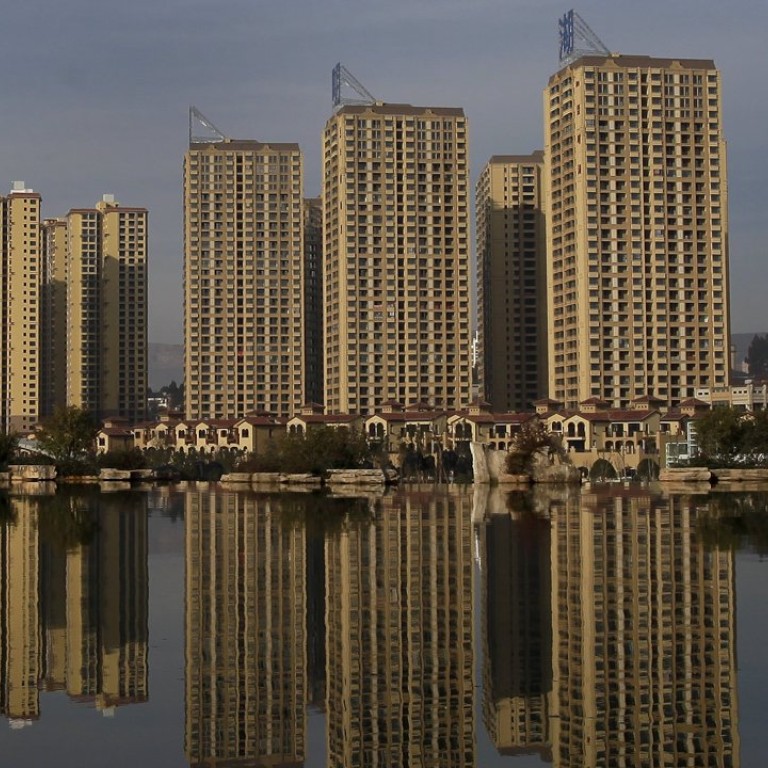
Why the market is upbeat on China property
The central government’s determination to destock property inventories has triggered anticipation that it will further relax policies to boost homes sales, sending a positive signal to property companies listed in both Hong Kong and China.
Chinese media has reported that destocking could be a major issue to be discussed at the annual plenary sessions of the People’s Congress and the Chinese People’s Political Consultative Conference. Analysts expect more supportive policies for the property sector to be announced as early as the first quarter.
Home sales in China reached a record 7.3 trillion yuan in 2015, owing in part to price rises in tier 1 cities, with Fitch Ratings saying it expects sales growth to continue this year.
Easing regulations and rising demand for residential upgrades should keep sales growth buoyed in 2016, and destocking will continue in tier 3 and 4 cities as well, says Fitch. The authorities could also spur growth even as they “maintain some policy space to loosen regulations further”, it said.
READ MORE: Home sales in top 10 Chinese cities jumped this much in December
According to another ratings agency, Moody’s, the gradual recovery in residential home prices in China’s 70 major cities continued in December. The number of cities reporting year-on-year price increases of more than five per cent rose to seven in December from five in November, although the number of cities registering price growth remained unchanged at 21. Further destocking will continue to support property prices, it says.
The favourable factors are expected to support China’s vast property market, which is seen as a major engine of the world’s second largest economy.
Analysts also said the market improvement has resulted in homebuilders’ financial profiles strengthening in recent quarters.
Citigroup said in a recent research report that Chinese property stocks are expected to continue to outperform this year. It expects more positive policy support in the near term and holds a positive view of the sector.
Having recorded 260 billion yuan in contracted sales in 2015, up 21.5 per cent year on year, and with higher average selling prices and accelerated land acquisition in the second half of 2015, Hong Kong- and Shenzhen-listed China Vanke continues to stand as China’s best property seller. However, UOB Kay Hian (Hong Kong) said in a report that the continued trading suspension of Vanke’s Shenzhen shares has raised market concerns over its unstable shareholding structure.
For the Hong Kong-listed companies rated by Fitch, strong sales growth, price rises in most cities, destocking and reduced home construction costs were the key trends in 2015 – all contributing to improving financials for the sector.
READ MORE: Little optimism about China’s property destocking prospects
Gross floor area sold grew to 1.12 billion square metres in 2015 – slightly less than the record 1.16 billion square metres in 2013 – and all but three Fitch-rated homebuilders reported growth in contracted sales.
The proportion of sales accounted for by larger tier 1 and tier 2 cities grew reflected their stronger markets relative to the smaller tier 3 and tier 4 cities. Price growth accelerated further in the final quarter of 2015, with 39 major cities reporting increases in December, from 33 the previous month.
Fitch said the outlook for homebuilders’ financial profiles this year is much more muted, and the improvements seen last year are unlikely to be repeated. Low rates of new construction expenditure – a key factor boosting homebuilders’ liquidity in 2015 – are likely to be reversed by the second half of 2016.
“We also expect high ongoing land costs in tier 1 and tier 2 cities to offset potential benefits from lower funding costs as rates fall,” it said.
Weaker profitability in new projects – given the high land costs – will especially add pressure on leverage for the lower rated firms, according to Fitch..
The prospects for continued improvement in financial profiles is limited in 2016 as high land prices continue to squeeze margins and falling housing completions prompt renewed growth in construction expenditures.
December data for major Chinese property issuers, outlined in Fitch’s latest China Property Watch report published on 26 January, confirmed trends from earlier quarters.

